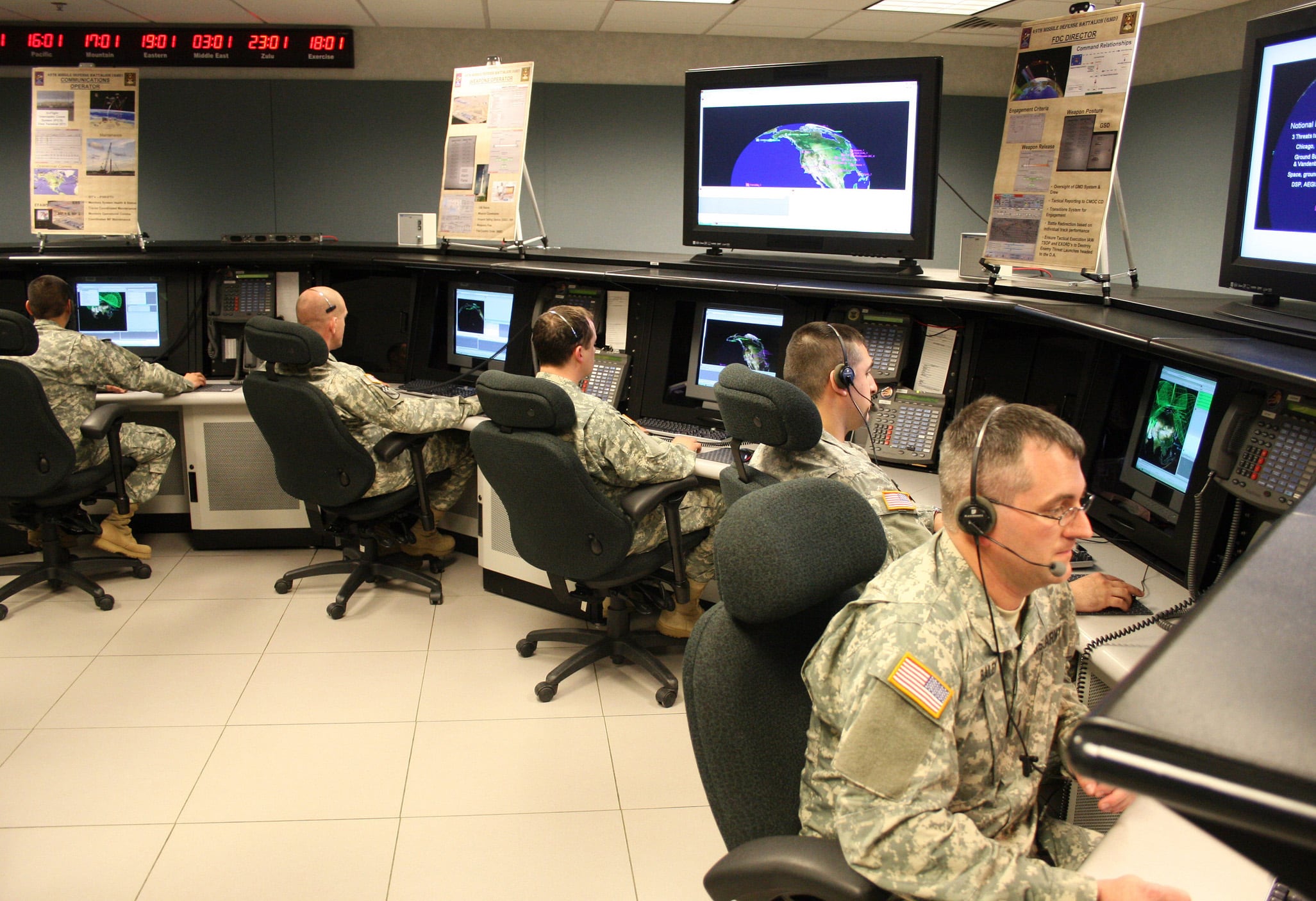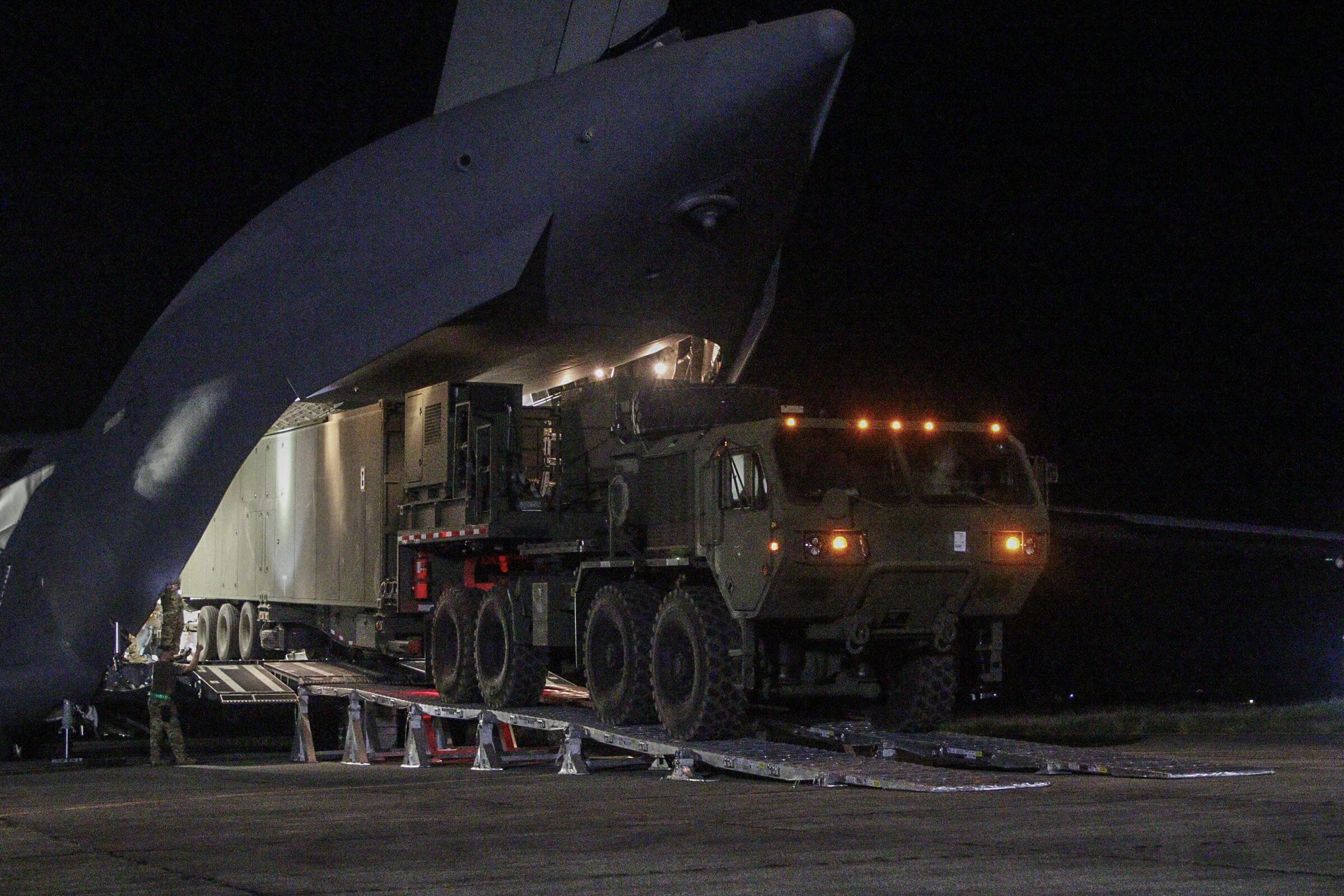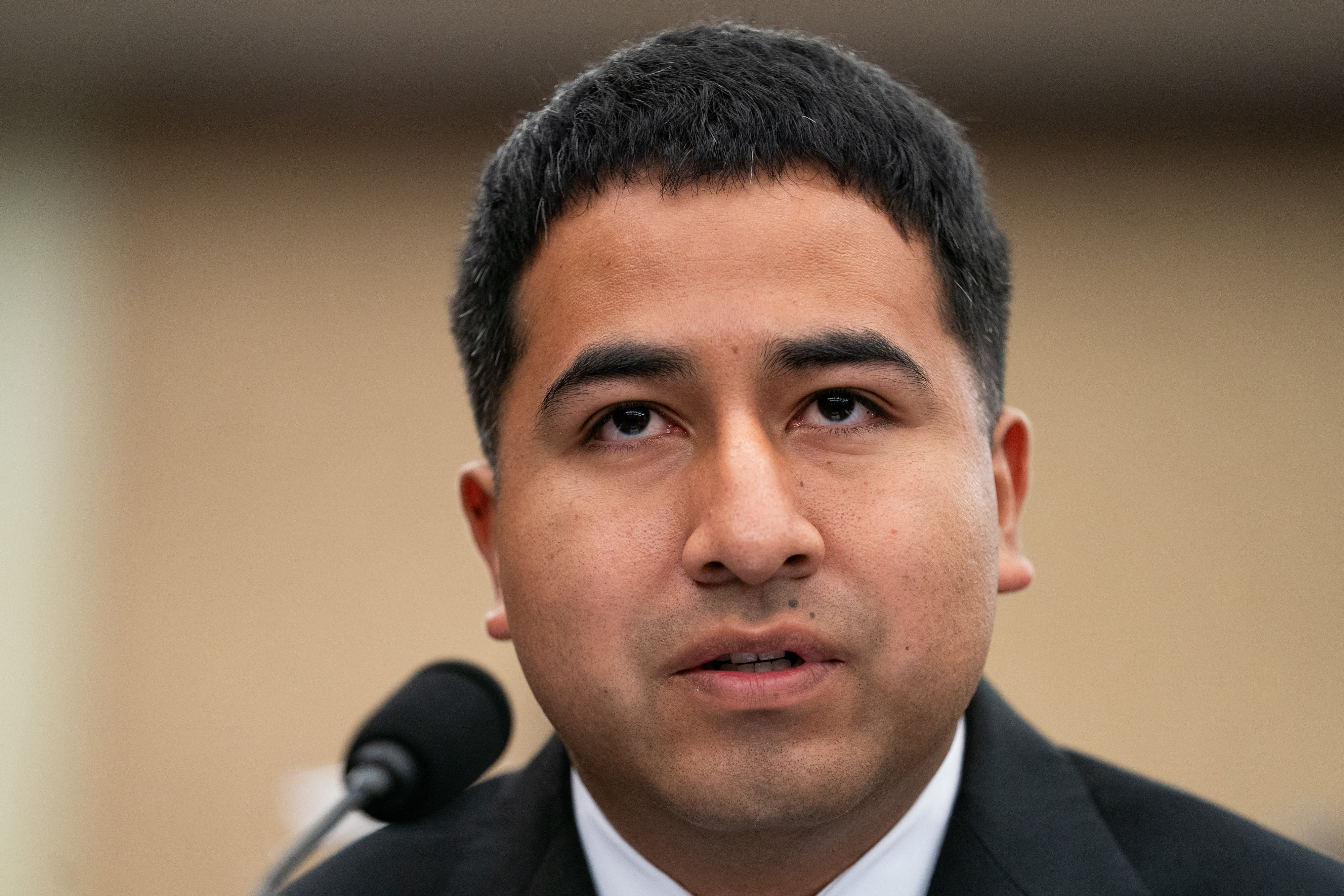The Pentagon’s top national security focus will mirror that of President Donald Trump’s “America First” agenda, with multiple U.S. officials telling Military Times that the department will prioritize protecting the homeland and the Western Hemisphere.
Countering China will remain a key national security interest of the new National Defense Strategy, which is expected to be released soon, officials said.
The Pentagon document lays out the military’s plans to increase lethality, deter aggression, confront adversaries and defend America’s borders, a mission one official said was “why Trump was elected.”
Republican voters in the 2024 presidential election ranked the economy and immigration as their most important issues, which Trump vowed to address and bring under control. On Jan. 20, on his first day in office, Trump signed an executive order calling on U.S. Northern Command to help “seal the borders and maintain the sovereignty, territorial integrity and security of the United States by repelling forms of invasion including unlawful mass migration, narcotics trafficking, human smuggling and trafficking and other criminal activities.”
“[Protecting] the border is the top priority for the base, and I think for moderates, too. So this shift is fulfilling that promise,” said one official, who spoke to Military Times on condition of anonymity to discuss sensitive policy information.
RELATED

Defense of the American homeland has historically been the top national security priority for Republican and Democratic presidents alike.
To achieve this goal, the Pentagon has used a combination of projecting military power forward to meet threats where they are, building alliances to work together against common enemies, maintaining a strong nuclear deterrent and building a missile defense capability to protect key population centers.
After the U.S. was attacked on Sept. 11, 2001, Washington shifted to a counter-terror focus, as near-peer competitor Beijing continued to develop its military.
During the first Trump administration, the Pentagon reprioritized to focus on great-power competition with China and Russia over countering terrorism. Keeping its competitive advantage over China and Russia remained the department’s top priority under the Biden administration.
One official stressed to Military Times this week that the new NDS will not be a complete shift away from China. Instead, the official said the Pentagon can use this hyperfocus on the Western Hemisphere to better counter Chinese malign activity in Latin America, a region often thought of as “America’s backyard.”
“For too long, China, Russia and Iran have been active in Latin America, and Washington’s response has often been somewhere between nonexistent and ineffective,” said Bradley Bowman, senior director of the Center on Military and Political Power at the Foundation for Defense of Democracies.
However, analysts, including Bowman, caution that if the U.S. only brings a “military hammer” to a region that needs interagency and public-private sector support for its economic challenges, the U.S. “will lose the competition with China in Latin America and waste a lot of money and military resources.”
He also warned that defending U.S. vital interests in the Pacific, Europe and the Middle East while adopting a more robust U.S. military posture in Latin America could quickly exacerbate existing shortfalls in U.S. military capacity.
“If we take on additional military commitments and requirements and don’t provide the Pentagon commensurate additional resources, readiness will erode. We have seen that movie before, and it is not a good one,” Bowman said.
As part of the new strategy, the department will continue to focus more on drug cartels, including cartels that are tied to China, according to a U.S. official. The official added that China has drastically increased its footprint in Latin America, particularly around the Panama Canal, a critical trade route for both Washington and Beijing.
“So the strategy is still very keyed in on defending against China,” the official stressed.
Michael Shifter, an adjunct professor of Latin American studies at Georgetown University, said the Panama Canal is “clearly” important to Trump. Negotiations are underway to shift two ports there away from Chinese operations to those controlled by the U.S. company BlackRock, and Panama has withdrawn from China’s Belt and Road Initiative, which has extended Chinese investment to more than 100 nations.
With the current administration focused on the illegal drug problem in the region, Shifter hopes U.S. military assistance to Latin America will not repeat the actions of its checkered past. Washington’s war on drugs in the 1980s, along with its determination to keep communism out of the Western Hemisphere, led to policies backing militaries that terrorized local populations and committed human rights atrocities.
The last time the U.S. sent ground troops to Latin America was during the 1989 invasion of Panama to depose de facto ruler Gen. Manuel Noriega, who was wanted in the U.S. for racketeering and drug trafficking. Shifter is “very skeptical” whether the U.S. would send ground troops anywhere in Latin America today.
“I don’t see that the president wants to risk American lives anywhere, and a lot of people got killed in Panama. If he did it in Venezuela, a lot more people would get killed. I think that would be huge risk that I don’t see Trump being prepared to take,” Shifter told Military Times.
Meanwhile, Trump said Friday the U.S. military had carried out its third fatal strike against an alleged drug-smuggling vessel this month.
On Wednesday Colombia’s President Gustavo Petro told BBC News that the strikes on boats in the Caribbean Sea near the Venezuelan coast were an “act of tyranny.” The strikes, which the U.S. says are meant to stop the flow of fentanyl, have reportedly killed at least 17 people.
Shifter said actions like these make people in the region nervous while questioning the strikes’ legality.
“[The administration is] trying to say that these are terrorists, like al-Qaida was a terrorist group, but al-Qaida was a military force. These are people that are breaking the law. They’re not terrorists, per se. They’re not attacking the United States like al-Qaida was, and so the legal justification for this is, I think, questionable,” Shifter said.





